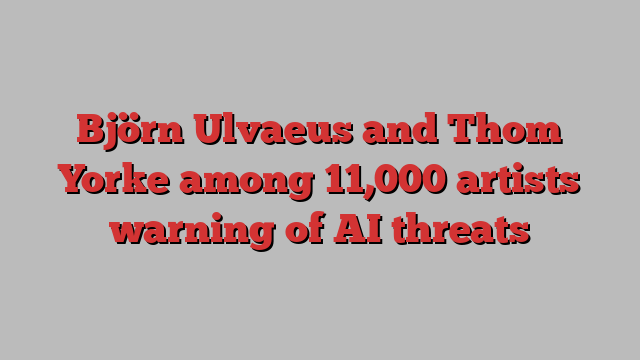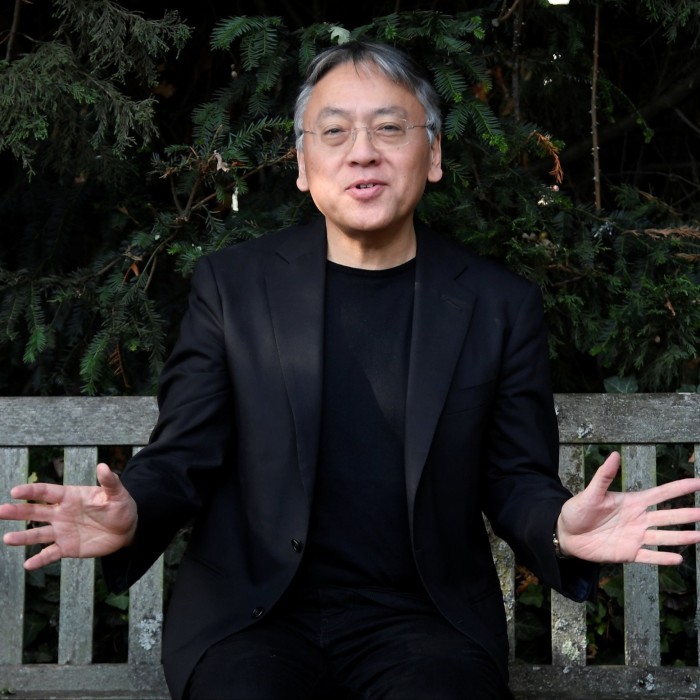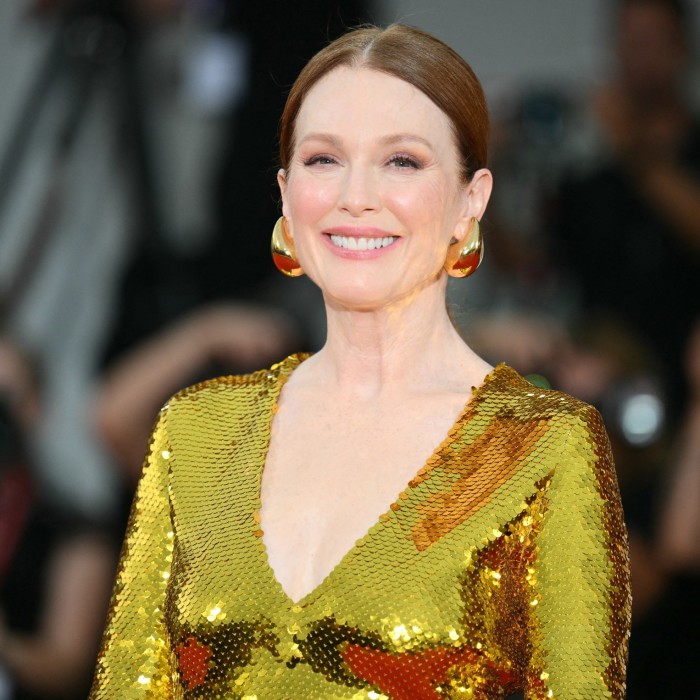
Stay informed with free updates
Simply sign up to the Artificial intelligence myFT Digest — delivered directly to your inbox.
Songwriters from Abba and Radiohead and authors including Kazuo Ishiguro and James Patterson are among more than 11,000 artists warning against the threat of artificial intelligence to the creative industries.
“The unlicensed use of creative works for training generative AI is a major, unjust threat to the livelihoods of the people behind those works, and must not be permitted,” the letter on Tuesday said.
Alongside Abba’s Björn Ulvaeus and Thom Yorke and other members of Radiohead, signatories include actors Julianne Moore and Kevin Bacon, authors Ian Rankin, Antonia Fraser and Kate Mosse, musicians Robert Smith of The Cure, Jason Kay and Billy Bragg.
The warning comes as capital continues to flood into AI, with ChatGPT creator OpenAI raising $6.6bn earlier this month and AI search start-up Perplexity targeting an $8bn valuation in its fourth round of funding this year, even as both companies face lawsuits from publishers.
Many artists are concerned content generated by AI — dubbed “slop” by critics — threatens to drown out human-created work, while offering scant payment for the copyrighted pieces on which some AI systems have been trained.


The latest protest letter was organised by Ed Newton-Rex, a former executive at UK-based generative AI start-up Stability who now runs Fairly Trained, which campaigns for creators to be compensated when their works are caught in the vast data troves used to build large AI models.
Newton-Rex has argued that while tech companies are investing tens of billions of dollars in the chips and computing infrastructure to train ever-larger AI systems, they have been reluctant to pay for the data those models need.
Creative industry executives and artists are increasingly worried AI companies are ripping off their works without payment or attribution when training large language models.
However, artists, authors and musicians often lack a single entity as powerful as Google or Microsoft-backed OpenAI to support the fight to project their copyrighted works.
Creative industries figures also fear government officials are being won over by the promise of investment by tech companies when drawing up policies over intellectual property protections.
In the UK, the government is expected to consult this year on plans to allow AI companies to take content from artists unless they specifically “opt out”. However, this has been seen as impracticable and costly by those in the creative sector.
Earlier this week, Rupert Murdoch’s Dow Jones and the New York Post accused Perplexity of a “brazen scheme” to rip off their journalism in a lawsuit filed in New York on Monday. The case follows a similar lawsuit against OpenAI from the New York Times. OpenAI has struck licensing deals with other publishers, including the Financial Times.